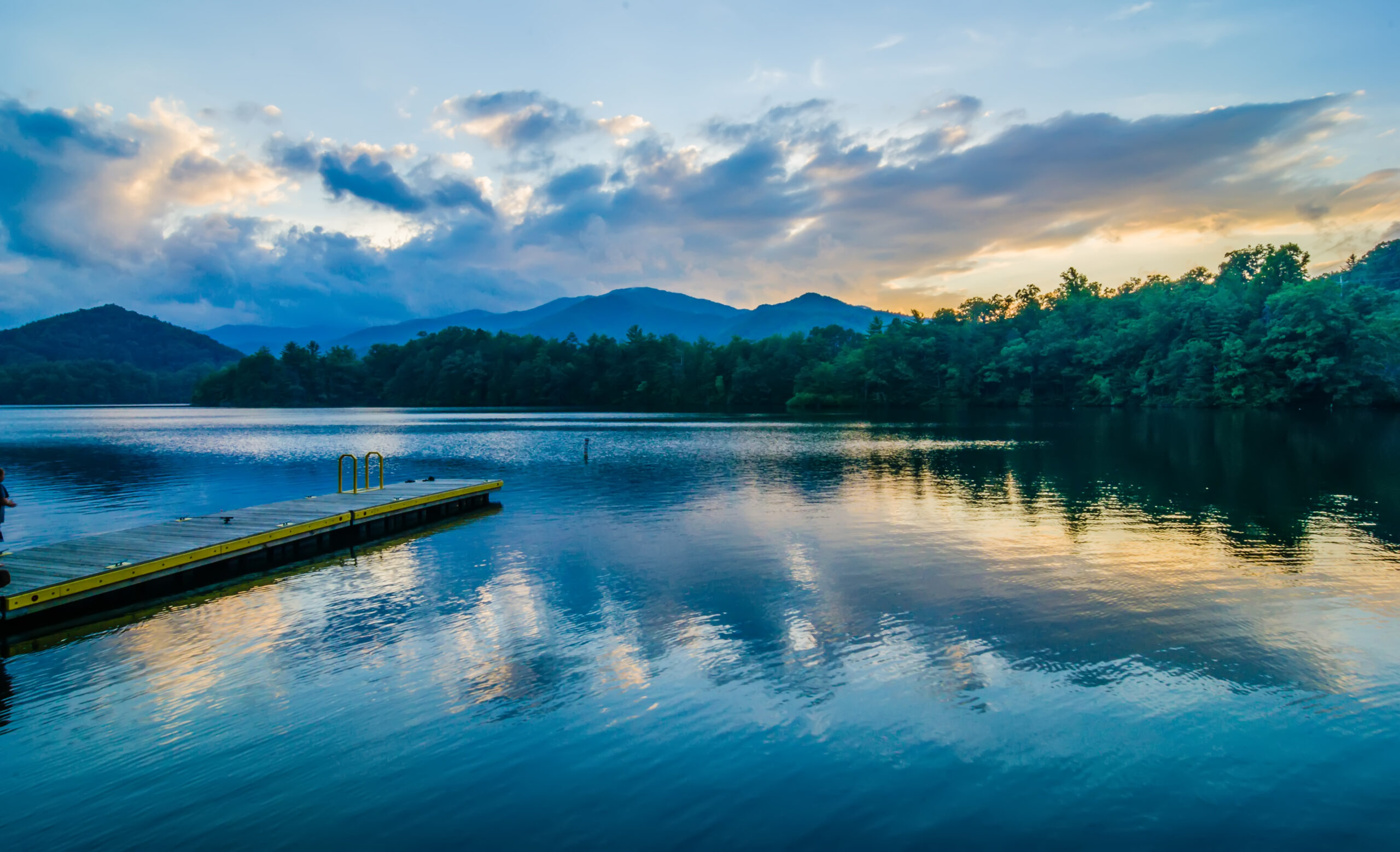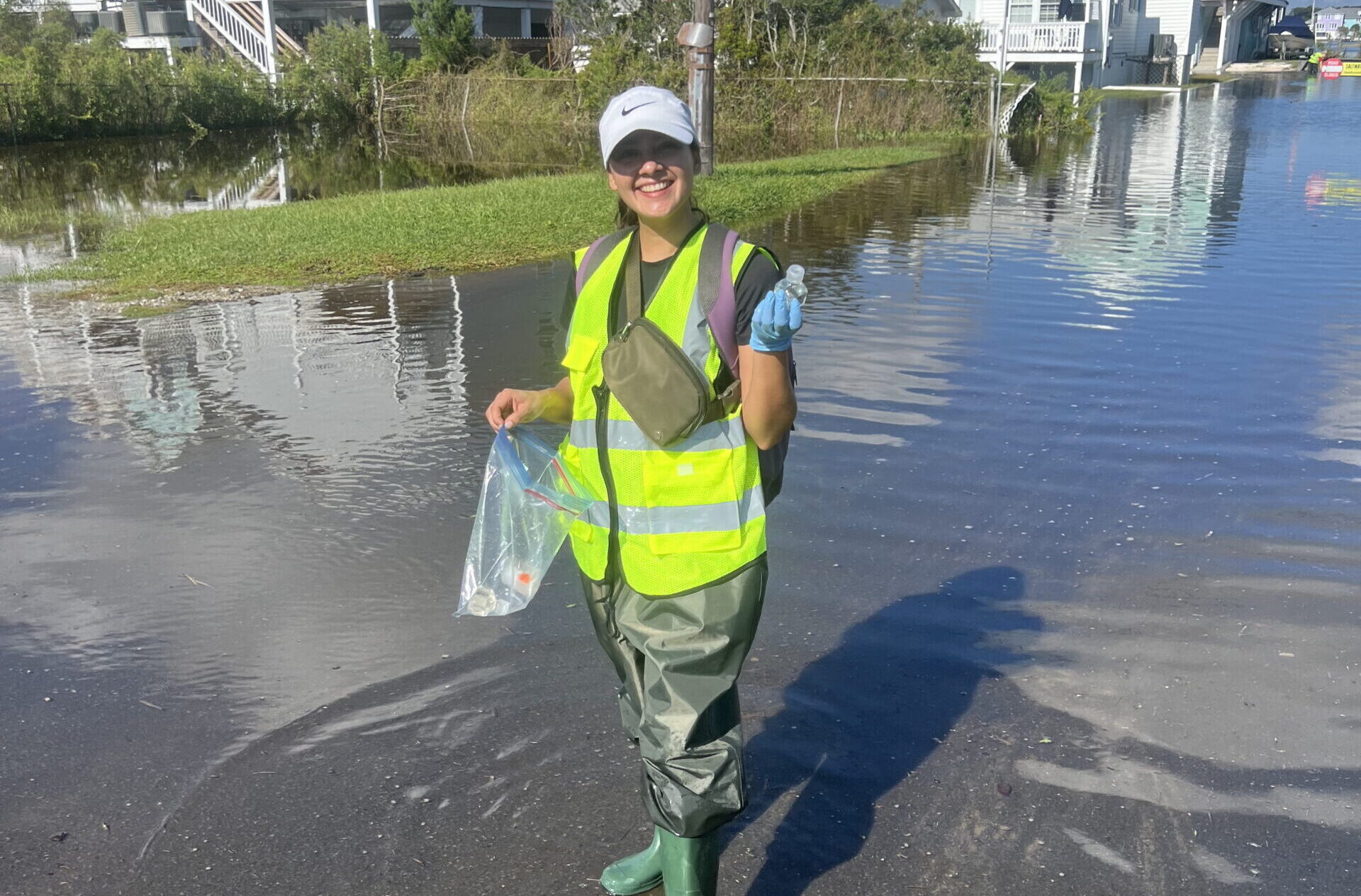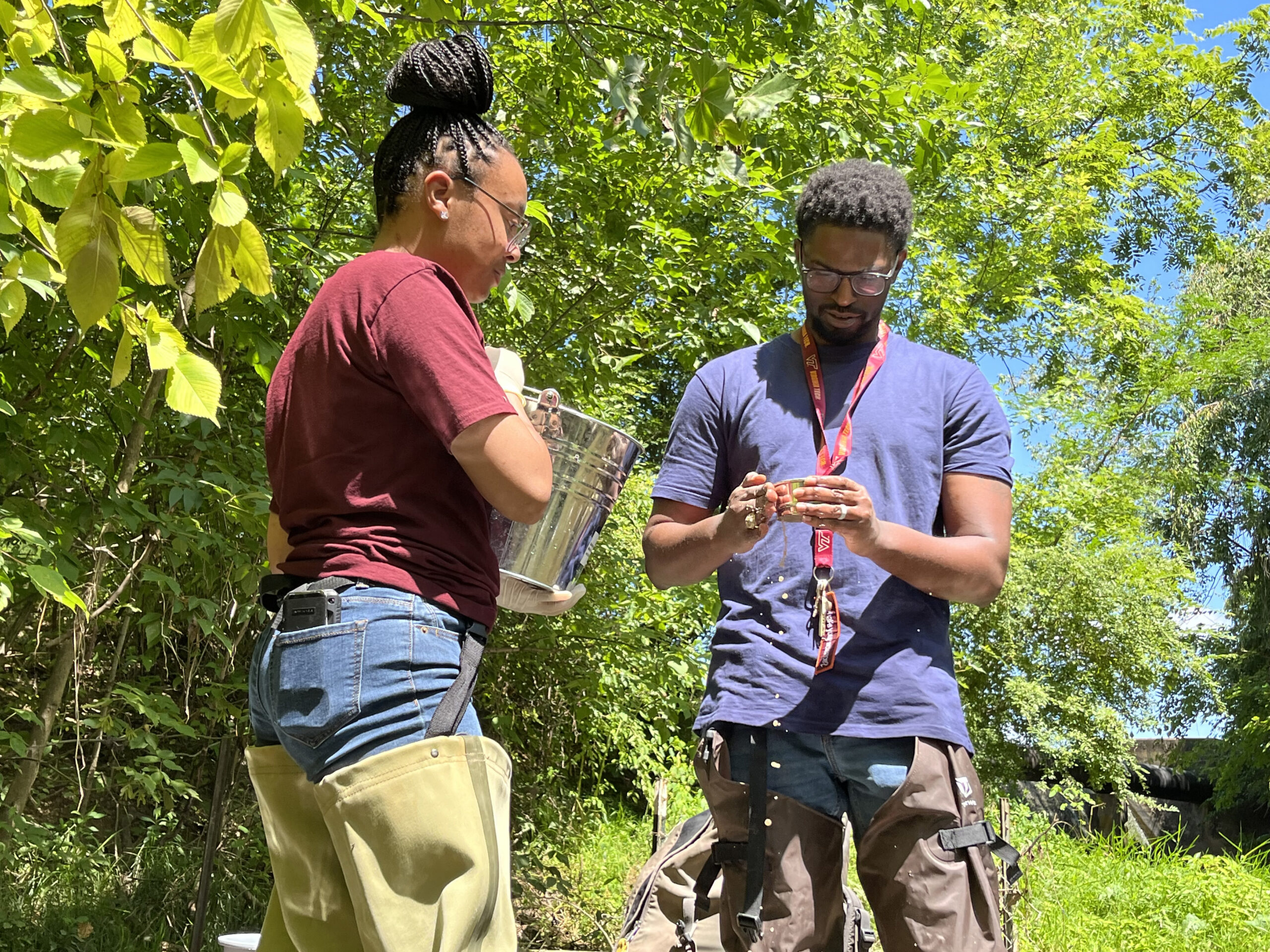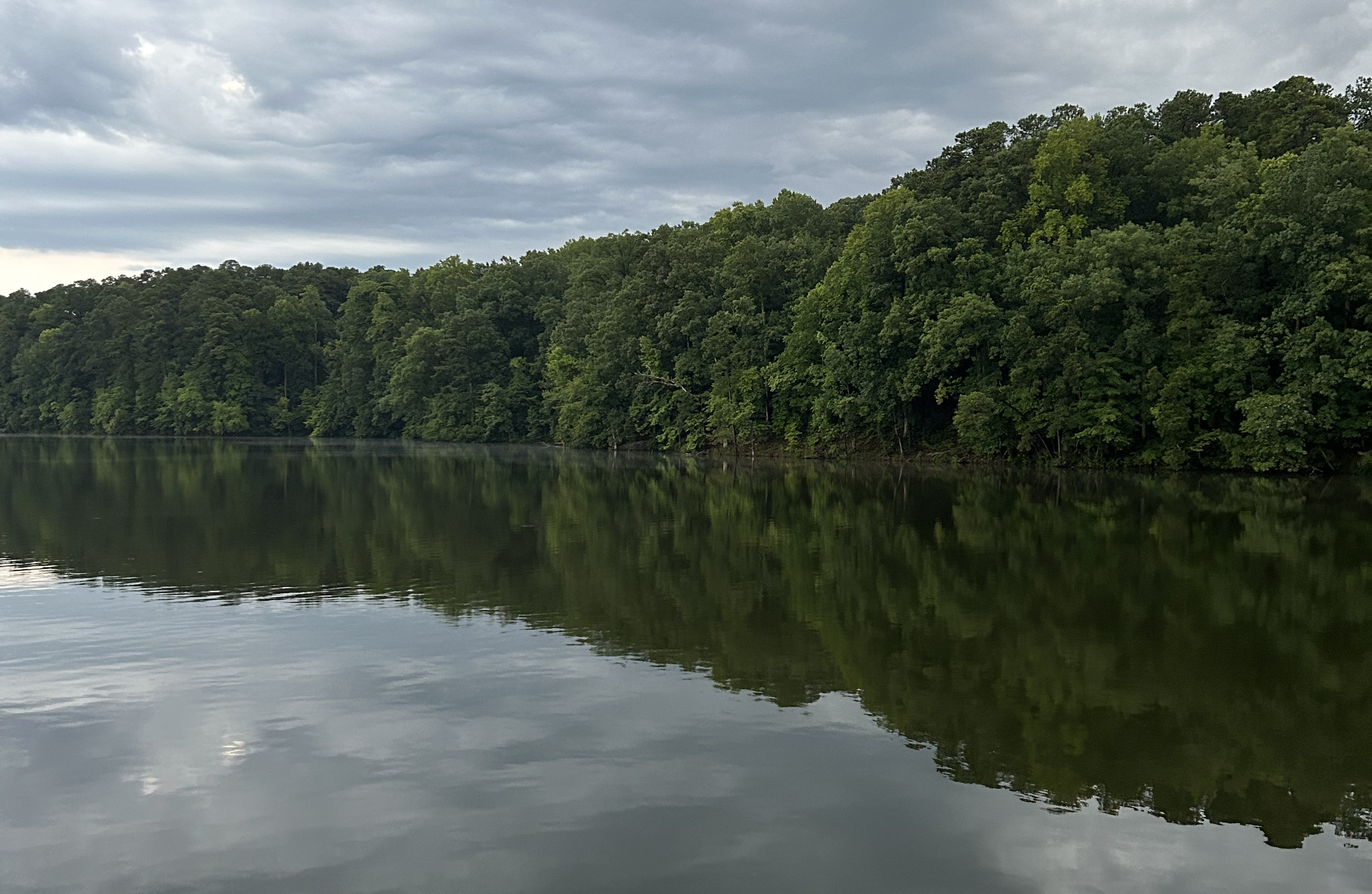Conference Wrap Up: Poster Presentations, Lightning Talk Winners, and More

Over 300 participants attended the 2024 WRRI Annual Conference, which took place in Raleigh on March 20 and 21 and featured engaging talks and presentations on water-related issues from researchers and practitioners across the state.
The event included 37 poster presentations, 16 lightning talks, and additional oral presentations and panel discussions over 6 concurrent sessions. WRRI would like to thank all attendees and speakers for their participation and their insightful presentations and posters, without which the conference would not have been possible!
Oral presentations covered topics including nutrient management, stream assessment and erosion, harmful algal blooms, and water policy. View the online conference program to learn more about these engaging and timely presentations!
Opening panel emphasizes community collaboration
On the first day of the conference, our opening panel focused on the ways in which collaborative community based research can be mutually beneficial to both researchers and the communities they’re partnering with. Panelists included hydrologist and community-engaged scholar Ryan Emanuel, chairperson of the Chowan Edenton Environmental Group Colleen Karl, and Neuse Riverkeeper Samantha Krop.
Panelists spoke of the synergistic opportunities to work alongside community partners, and the importance of community outreach and engagement as an integral and complementary part of scientific research.
Emanuel, an environmental scientist and a member of the Lumbee tribe, described being frustrated by the lack of intersection between his research and his community. He detailed how he changed his approach to both scientific research and community outreach in order to bring the two closer together.
Colleen Karl, chairperson of the Chowan Edenton Environmental Group, emphasized the benefits of close collaboration between scientists and community members affected by the recurring seasonal algal blooms on the Chowan River and Albemarle Sound. She highlighted the ways in which citizen science can help to mobilize community members to collect water samples and analyze algal cells, ultimately furthering scientific understanding of how and why these harmful algal blooms form.
Sound Rivers’ Samantha Krop echoed the sentiments of the other two presenters in her exploration of her work as a riverkeeper on the Neuse River, the longest river in North Carolina. Working at the intersection of environmental protection, community engagement and activism, and on-the-river monitoring and sampling, riverkeepers play a unique role in helping to unite scientific research, law and government, and members of the community. Krop covered topics including engaging community members in the installation and maintenance of trash traps, water sampling, Sound Rivers’ popular summer swim guide, and more.
Interested in learning more about our panelists’ work? Read more below:
Speaker Layla El-Khoury explores the intersection of art and science
The second day of the conference opened with an engaging presentation from Layla El-Khoury, a PhD student in the Biological and Agricultural Engineering department at NC State University. In addition to conducting research in improving methods for identifying, predicting, and quantifying streambank erosion, Layla is also a skilled dancer and choreographer, and weaves together aspects of science and dance by choreographing dance pieces inspired by her scientific research.
El-Khoury began by posing a question to her audience. What experiences, she asked, were more memorable to them: reading scientific papers or studies, or experiencing works of art like movies, books, and performances? As the audience agreed and Layla went on to demonstrate, art often sticks in our minds and impacts us in a way that a scientific text alone may not. Art that incorporates scientific research, Layla argued, is a way to leave a lasting impression while also raising awareness about environmental problems.
To further her point, she shared excerpts from two choreographed dance pieces, one focusing on streambank erosion and one focusing on plastics and microplastics in streams. These mesmerizing pieces communicated scientific concepts in a way that was aesthetically engaging and emotionally impactful.
View Layla’s beautifully choreographed dance pieces below:
Poster presentation winners
Our judges narrowed down almost forty poster presentations to our top three picks, plus one honorable mention. Posters covered topics including shoreline migration, the positive impacts of beavers, and more.
- 1st prize: Understanding The Impact Of Extreme Events On Shoreline Migration Through The Lens Of Remote Sensing: A Case Study At The Rachel Carson Reserve, North Carolina by Evelyn Wilcox
- 2nd prize: Investigating Microcystin Presence In Frequently Caught Recreational Fish Species In Albemarle Sound, North Carolina In 2023 by Madison Sholes
- 3rd prize: Beavers Help Reduce Urban Stormwater Issues Through Habitat Choices by Chris Norcross
- Honorable mention: Evaluating The Accuracy Of Hawkeye Ocean Color Imagery: Comparative Study Of Satellite-Derived And In Situ Measurements by Mitchell Torkelson
Lightning talk winners
The conference facilitated 16 engaging, informative lightning talks. Of these, we chose one prize winner and one honorable mention from the student presentations.
- 1st prize: Low-Cost Multiparameter Water Instrument Development for Citizen Science–Based Evaluation of Satellite Imagery by Jessie Wynne
- Honorable mention: Geospatial Analysis of Chlorophyll-a: Unveiling Ocean Eutrophication and Acidification the Surrounding Waters of a Caribbean Island by Maria del Alma Concepcion
Read more about the winning posters and lightning talks in our conference program.
Looking forward to next year
The 2025 WRRI conference will take place March 19 and 20 at the McKimmon Center in Raleigh, NC. We look forward to seeing you there!
- Categories:


